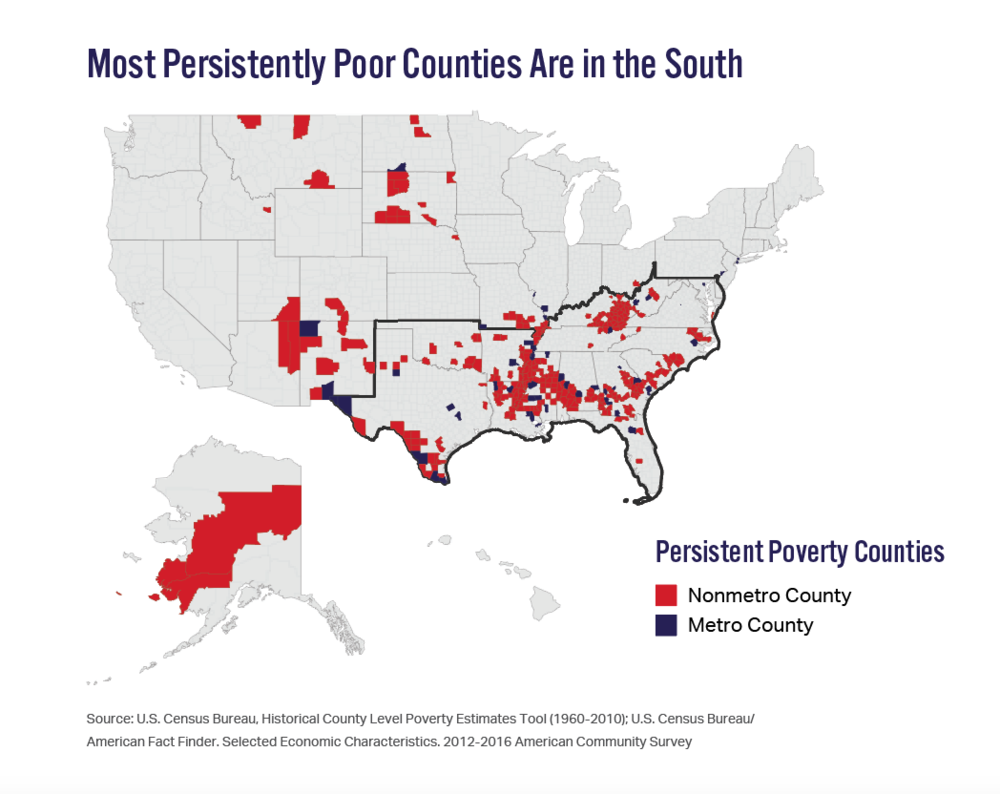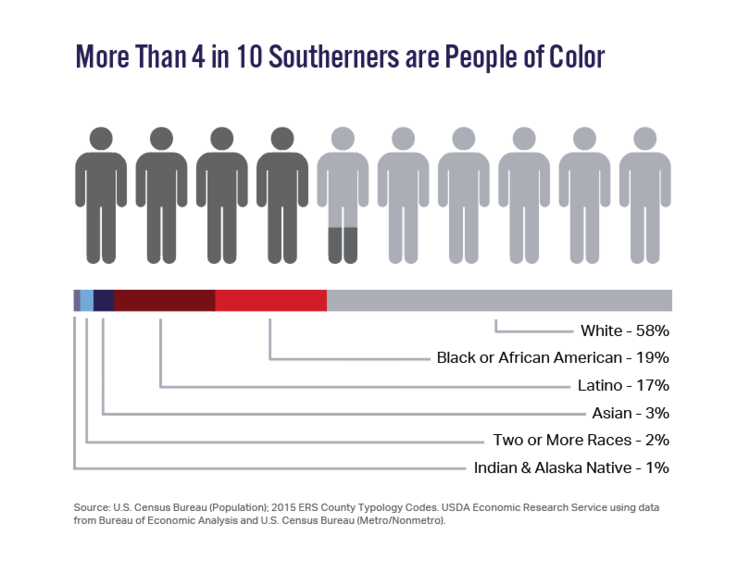Today, we recognize the millions of Americans going to work each day in essential roles as heroes who risk their health every day and still earn less than a living wage. Millions more Americans are out of work and facing an uncertain future. Yet our challenges persisted long before COVID-19. In February of this year, before the COVID-19 pandemic hit, one in every three Americans lived with economic insecurity; more than half are people of color as the result of decades of structural racism. Even worse, approximately 140 million Americans could not afford a $400 emergency even before we faced a global pandemic.
People living in the South appear to be at greater risk to this pandemic and to the economic damage that may result. When compared to other regions, the American South has higher rates of economic insecurity, elderly residents, residents with self-care and/or independent living difficulties, and lower rates of paid sick leave coverage when compared to the national average. Further, people of color bear the disproportionate impact of this public health and economic crisis, with Black Americans facing the largest burden in the South. According to data from the Centers for Disease Control and Prevention (CDC), COVID-19 is affecting the Black population at exceptionally high rates. While Black people make up just around 13 percent of the U.S. population, they represent 30 percent of COVID-19 patients and constitute a third of COVID-19 fatalities. Majority-black counties have had infection rates three times the rate of majority-white counties. Those statistics beg us to ask, why is this disease preying upon this segment of our population so dramatically?
We cannot and must not be surprised by the answer. Centuries of discriminatory policy are coming home to roost. We now face life and death decisions at an unimaginable scale after decades of dismantling our social safety net. Like Hurricane Katrina and all crises that have come before and will after it, this pandemic has magnified the deep structural inequities that have existed in our society for generations, if not since its founding.
Our current circumstances must prompt a greater examination of how we treat each other. Our country has long been divided by design and those divisions create significant disparities in outcomes because of COVID-19. We have to ask ourselves, is this really who we are? Is this what we really value? Or can we finally acknowledge what we see in the mirror and demand change from the previously accepted status quo?
Centering our response on policies that directly address these disparities will ultimately benefit us all. These are not left or right issues, but fundamental questions of our identity, our national security, and our collective future. When we understand the power of equity and view it as an economic and social growth strategy, we can weather any storm. We are stronger together.
THE ROADMAP TO GREATER RESILIENCE AND BETTER OUTCOMES REQUIRES AN EQUITABLE RESPONSE AND RECOVERY. WE BELIEVE THAT ALL GOVERNMENT ACTION MUST BE GUIDED BY THE FOLLOWING FOUR PRINCIPLES.
- Data and science must lead the way.
- Our federal, state, and local governments must address this pandemic in a way that strengthens racial equity and economic equality. Disparities thrown into sharper relief by this crisis require long-term solutions, not short-term patches.
- Local governments are on the front lines of the COVID-19 crisis and must be treated as partners in delivering services and policy, not as special interest groups.
- This is a time to act with courage and conviction and to make bold and lasting systemic change.
As we outlined in “Divided by Design,” our policy focus is rooted in dismantling unequal access to opportunity, democracy, safety, and protection under the law. We do not claim to be the first to take an interest in breaking these barriers; rather, we are committed to supplementing the deep knowledge in this field with insights shared with us by communities across the South.


